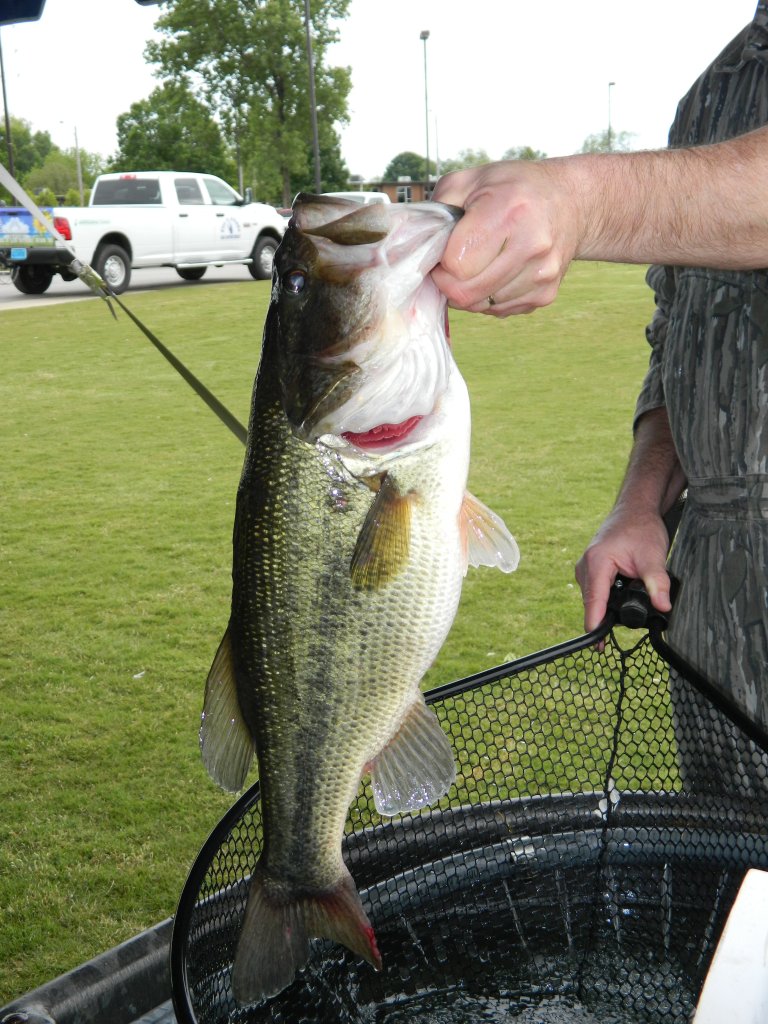How to fish safely during COVID-19
Published 5:00 am Thursday, April 2, 2020

- Fishing is something that can still be done during the coronavirus pandemic. However, precautions should be taken to avoid spreading the virus.
BIRMINGHAM — The rapid spread of the coronavirus has forced the closure of schools, businesses, events and any other nonessential gatherings of people across the world. For many, being off work or out of school means an opportunity to go bass fishing. But should they?
An avid bass angler as well as a medical professional involved in the battle against novel coronavirus, Dr. Neil Schaffner sat down with Bassmaster.com to explain how to apply social distancing practices while fishing in those areas where being out on the local fishery is still possible.
“Probably the safest place to be is on the lake right now,” said Dr. Neil Schaffner of Opelika, a 40-year veteran of the medical profession with a background in critical care and, currently, an endocrinologist on staff at East Alabama Medical Center. “Everybody knows you’re supposed to practice social distancing by staying at least 6 feet away from other people. You can do that when you’re out in the middle of nowhere, in open spaces and open air.”
That doesn’t mean anglers should be oblivious to the dangers of contracting what, for some, can be a deadly virus.
“Your biggest risk is at the gas pump,” Schaffner said. “Perhaps 500 people have touched the handle before you picked it up. The second greatest risk might be pulling through a drive-thru to get a biscuit on the way to the lake.”
While many boat ramp facilities remain open, this is not true across every state. Schaffner believes officials close some recreational facilities to protect personnel from exposure, while others are closed because restrooms and other facilities can be conduits to spreading the coronavirus.
Schaffner says avoid touching any hard surface without protection. Wear gloves. If surgical gloves aren’t an option, work gloves are better than nothing. Anything that provides a barrier between skin and a contaminated surface can help. Using a paper towel to hold the gas pump handle might save someone from getting the disease, Schaffner suggests. Unwrap that biscuit with a napkin and avoid touching any of the packaging. If you visit a fast-food restaurant, make sure employees are wearing gloves.
Schaffner knows sharing the experience with a buddy makes fishing so much more enjoyable, but in these times, two might be a crowd. If you’d rather not fish alone, there are several ways to minimize the danger of catching coronavirus from a fishing buddy.
“The good thing is there’s at least 6 feet between the front pedestal and the back pedestal in a bass boat,” he said.
Still, it’s important to observe extreme caution when considering fishing with another person.
“If your buddy just got off a cruise ship three days ago, I wouldn’t go fishing with him,” Schaffner said. “If your fishing partner is coughing or has any other of the symptoms — fever, aches, sore throat — or has been exposed to someone with coronavirus, don’t go.”
Should you still decide to fish with someone else, do all you can to avoid touching a surface your friend has touched. Agree that you will stay on opposite ends of the boat and not touch anything the other has touched. If you hook a big bass and he nets the fish for you, sanitize the net handle.
Sharing the cab of a pickup brings you into closer proximity, but Schaffner believes normal, steady breathing and conversation should not be much of a risk. It may not be a bad idea to wear masks and drive with the windows down.
In these extreme times, what used to be done out of an abundance of caution has now become common sense.
Schaffner, who cohosts a local television program in Montgomery, “The Fishin’ Mission,” is preparing to go fishing this week — alone.
“I would be a risk to my fishing partner because of my constant exposure (from) treating patients all day long,” he said. “Right now, I’m living alone, in my basement, apart from my wife and daughter. Their risk of getting the virus is me.”
Visit https://www.coronavirus.gov and https://www.cdc.gov for more information on protecting yourself and others from the coronavirus.





